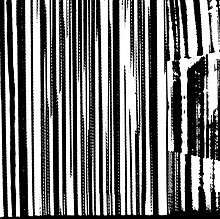Harsh 70s Reality
Harsh 70s Reality is the fourth studio album by The Dead C, released in 1992 by Siltbreeze.[2]
| Harsh 70s Reality | ||||
|---|---|---|---|---|
 | ||||
| Studio album by | ||||
| Released | 1992 | |||
| Recorded | December 1989 – September 1991 | |||
| Genre | Noise rock | |||
| Length | 81:10 | |||
| Label | Siltbreeze | |||
| Producer | The Dead C | |||
| The Dead C chronology | ||||
| ||||
| Review scores | |
|---|---|
| Source | Rating |
| Allmusic | |
Stephen Malkmus of the rock band Pavement has cited the record as one of his top 10 all-time favorite albums.[3]
Track listing
All tracks are written by The Dead C.
| No. | Title | Length |
|---|---|---|
| 1. | "Driver U.F.O." | 22:23 |
| No. | Title | Length |
|---|---|---|
| 1. | "Sky" | 3:38 |
| 2. | "Love" | 11:51 |
| 3. | "Suffer Bomb Damage" | 3:40 |
| No. | Title | Length |
|---|---|---|
| 1. | "Sea Is Violet" | 7:57 |
| 2. | "Shark" | 4:55 |
| 3. | "Constellation" | 6:43 |
| No. | Title | Length |
|---|---|---|
| 1. | "T. Is Never Over I & II" | 4:00 |
| 2. | "Baseheart" | 6:53 |
| 3. | "Hope" | 9:23 |
| No. | Title | Length |
|---|---|---|
| 1. | "Driver U.F.O." | 22:23 |
| 2. | "Sky" | 3:38 |
| 3. | "Love" | 11:51 |
| 4. | "Suffer Bomb Damage" | 3:40 |
| 5. | "Sea Is Violet" | 7:57 |
| 6. | "Constellation" | 6:43 |
| 7. | "Baseheart" | 6:53 |
| 8. | "Hope" | 9:23 |
Personnel
Adapted from Harsh 70s Reality liner notes.[4]
|
|
Release history
| Region | Date | Label | Format | Catalog |
|---|---|---|---|---|
| United States | 1992 | Siltbreeze | LP | SB11/12 |
| 1995 | CD | |||
| 2012 | LP |
References
- Raggett, Ned. "The Dead C: Harsh 70's Reality > Review". Allmusic. Retrieved March 1, 2013.
- Sprague, David (2007). "Dead C". Trouser Press. Retrieved March 11, 2016.
- Jovanovic, Rob (2004). Perfect Sound Forever: The Story of Pavement. Justin Charles & Co. ISBN 978-1-932112-07-8.
- Harsh 70s Reality (sleeve). The Dead C. Philadelphia, Pennsylvania: Siltbreeze. 1992.CS1 maint: others (link)
External links
- Harsh 70's Reality at Discogs (list of releases)
gollark: What would that even *do*?
gollark: Oh no not a browser æ
gollark: You can only get virii if you do stupid things. Which means it happens all the time.
gollark: It's also BETTER than useless in some ways because it can rebroadcast messages to ensure they get places, although it is very inefficient at this and mostly obsoleted by ender modems.
gollark: It's actually WORSE than useless in some ways because the "send to ID" thing doesn't ACTUALLY only send it to that ID and the ID on rednet messages can be faked, thus false sense of security.
This article is issued from Wikipedia. The text is licensed under Creative Commons - Attribution - Sharealike. Additional terms may apply for the media files.